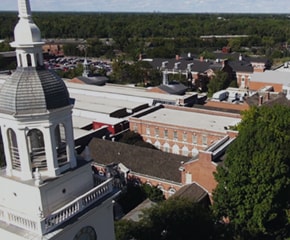Howard & Davis Wall Clock, circa 1845
Add to SetSummary
Simon Willard obtained a United States patent in 1802 for a compact wall timepiece. Willard's clocks were accurate and dependable--and economical to produce. He permitted family, associates, and other manufacturers to make clocks based on his original design. Others copied the style. Banjo clocks, nicknamed for their characteristic shape, remained popular throughout the nineteenth century.
Simon Willard obtained a United States patent in 1802 for a compact wall timepiece. Willard's clocks were accurate and dependable--and economical to produce. He permitted family, associates, and other manufacturers to make clocks based on his original design. Others copied the style. Banjo clocks, nicknamed for their characteristic shape, remained popular throughout the nineteenth century.
Artifact
Wall clock
Date Made
circa 1845
Location
Not on exhibit to the public.
Object ID
00.17.310
Credit
From the Collections of The Henry Ford.
Material
Wood (Plant Material)
Cherry (Wood)
Rosewood (Wood)
Brass (Alloy)
Steel (Alloy)
Glass (Material)
Color
Brown
Black (Color)
Gold (Color)
White (Color)
Dimensions
Height: 31.75 in
Width: 13.5 in
Length: 4 in
Inscriptions
Lower door glass: U.S. LIGHT HOUSE / ESTABLISHMENT Below hands arbor: HOWARD & DAVIS. / BOSTON.





